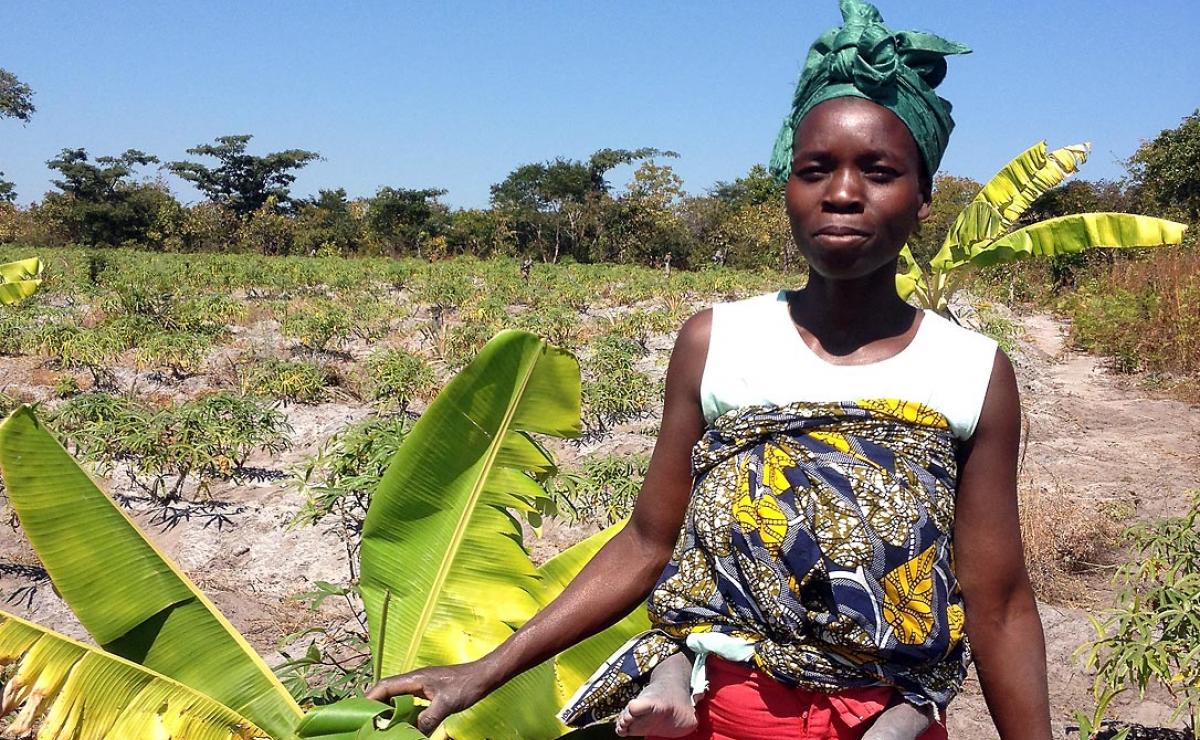“We have woken up”

Local to global: LWF supports communities in Angola secure their land rights
(LWI) - “Land is so important to us, all our rights come from the land,” Joao*, president of the Farmers’ association in Chinganga Moises Village, Angola, says.
“Having land ensures our right to eat, to dress… all our lives depend on the land. Before, we did not know about our land rights or the delimitation process, we did not know the land belonged to the state. We were asleep but now we have woken up.”
Joao is one of nearly 30,250 people benefitting from a Lutheran World Federation (LWF) project on land rights in Angola. Last year, the LWF introduced a new three-year rights- project to protect livelihoods through securing land rights. The first results are already visible in many communities.
Land registration
Land rights are a major issue in Angola today. In 2004 a law was passed, making it mandatory for everybody to register their lands by mid-2010. Unfortunately, there is little state guidance or official authorities in the process, making it difficult to actually implement that law. To date, 90% of the land remains unregistered. With increased demand for agricultural land, subsistence farmers and rural communities are in danger of having their land grabbed by big agricultural and mining companies, losing their entire livelihood with it.
LWF has started working with three communities and villages in Moxico Province to raise awareness on the importance of registration, and accompanies 39 villages in their process to register and thereby protect their land. Through workshops and trainings communities are told about their property rights and encouraged to formalize their lands to avoid expropriation.
Maria Justina speaks in a village consultation. Part of the project is to encourage farmers to unite to better support each other.
The process is facilitated and led by village development committees, a representative group of the community that speaks for the groups of farmers if there are land issues to resolve, both locally and at higher level if needed. This way, 10 villages are currently finalizing the registration of their farmers’ association land for a total of nearly 5000 hectares.
Women’s empowerment
Land rights education also unifies the farmers, making them better able to plead their case with local and national authorities. Costa Milos, from the municipality of Camanongue, underlines how they were previously farming as scattered households and how they have now come together. “Even when we die, once we legalize it, this land will be our children’s land and nobody can take it from us.”
The LWF also takes care to improve the access of women to land deeds, as it provides a form of protection and security in a traditionally patriarchal society. In spite of notable changes in traditional gender roles as a consequence of the Angolan civil war, women are still marginalized in their access to land under many Angolan customary laws. The LWF has been integrating gender dimensions across all entire project activities and has held specific consultations to challenge and mitigate discrimination.
A crucial instrument is to improve literacy of women, who otherwise cannot engage in legal processes. Gloria benefitted from one of the 12 literacy classes the LWF put into place. Whenever she has to write her name, she takes pride in her new ability. “Now women have the opportunity to cultivate crops on their own land. Before, we didn’t have access to land, now that we have registered the land for the women’s group, we can manage our documents alone.”
Gloria writing her name. Adult literacy classes empower women to claim their land.
It is a change that runs through all aspects of community life, as Maria Justina, another representative of the women’s group, explains. “We didn’t even know that we, as women, could speak out in front of men,” she says. “Today we work together with men, we handle finances with them, we know how to save money for our family, which helps us to send our children to school and receive medical care. Before it was only men who handled finances and who spoke up.”
From local to global
The strength of the project is that it makes the connection between the local, national and global levels, making the voices of farmers like Joao, Gloria and Maria Justina heard by their governments and by international actors such as the United Nations Human Rights Council and the Business and Human Rights Forum. It intends to make land allocations more transparent through advocating with the government and networking with civil society in the country. The LWF has also worked with local partners on the Universal Periodic Review of the human rights situation in Angola.
LWF has been working in Angola since 1986, when it was one of the major aid organizations providing emergency relief and rehabilitation at the height of the Angolan civil war Since the peace agreement in 2002, it has transitioned to a long term development program focusing mainly on integrated rural development (livelihoods and community empowerment) and now land rights projects.
The project is funded by Bread for the World (Brot für die Welt) Germany.
*All last names omitted at the request of the people interviewed

